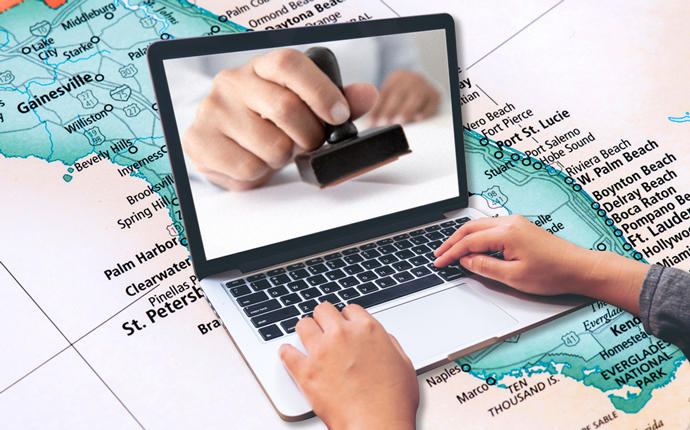
Florida Legislature passes bill that could boost foreign investment in real estate
- A Florida bill may allow for remote notarizations.
- Other states that legalized online notarizations include Virginia, Texas and Nevada
The Florida Legislature recently passed a bill that would make remote online notarizations legal, a move that could speed up foreign and out-of-state real estate investment in the Sunshine State.
Florida’s House of Representatives and Senate approved House Bill 409, which now heads to Gov. Ron DeSantis’ desk. If DeSantis signs it into law, Florida would become one of only a few states that accepts remote electronic notarizations, joining Virginia, Indiana, Minnesota, Nevada, Texas, Vermont and others.
The bill would allow for buyers, sellers, lessees, lessors and other parties on real estate transactions to physically be outside of Florida to get notarized documents signed – speeding up what can be a painfully old-fashioned process. Remote online notarizations were first accepted in Virginia in 2011.
If it passes, the bill could encourage more international investment in Florida, experts say. Florida ranks as the top state for foreign buyers, with the highest concentration in South Florida. In 2018, 65 percent offoreign investment throughout the state was in Miami-Dade, according to the Miami Association of Realtors.
“It provides the opportunity for a lot more investment, to expedite transactions,” said Gunster attorney and government affairs consultant Greg Black. “We have a ton of cash buyers coming into the country from South America and Europe. In South Florida and Central Florida, we also have a big military population” that could use remote online notarizations.
Black worked to get the bill passed on behalf of his client, Notarize Inc. In addition to other services, the company offers a customized platform for mortgage lenders and title companies to close loans online. Competitors include NotaryCam, DocVerify and SafeDocs.
In 2017, the Wall Street Journal reported that for the first time ever, through Notarize, an American family closed a mortgage for their home in Illinois remotely using only electronic signatures.
Notarizations are typically done in person, and in the case of real estate deals often require out-of-state and foreign parties to physically be present for a closing. If they’re not done in person, buyers and sellers can participate in mail away closings, which take longer and leave more room for error, Black said.
A platform like Notarize would document each step of the process, including when a buyer or seller signs documents, and ensures that documents like deeds and mortgages are signed with “no missing pages.” Witnesses are required to be in the U.S., and the notary must be a Florida notary physically in the state at the time of a notarization.
Notarize can also provide witnesses if needed. For a commercial lease, for example, two witnesses are required in the state of Florida. The service, which records video of documents being signed by witnesses, parties to a deal and notaries, could also be useful in litigation, Black added.
“It creates a journal with the technology, which we do not have under traditional [notarizations],” he said. “All of that information is very accessible.”





